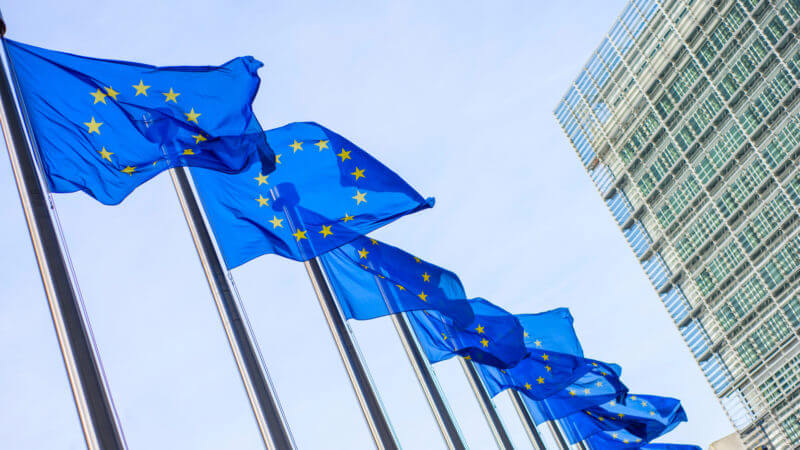EU Working on Payments Plan for Iran Business

EghtesadOnline: Germany and France said they are working on financing solutions to sidestep US sanctions against countries such as Iran, including a possible role for central banks.
The discussions, which also involve the UK, indicate that European powers are getting serious about demonstrating a greater level of independence, as their frustration at mollifying US President Donald Trump hell-bent on pushing his “America First” agenda has given rise to widespread anger.
“With Germany, we are determined to work on an independent European or Franco-German financing tool which would allow us to avoid being the collateral victims of US extraterritorial sanctions,” French Finance Minister Bruno Le Maire said on Monday during a meeting with the press association AJEF, according to Financial Tribune.
“I want Europe to be a sovereign continent not a vassal, and that means having totally independent financing instruments that do not today exist.”
Trump reimposed the sanctions after pulling the US out of the Iran nuclear accord in May, despite opposition from NATO allies and China and Russia. European companies, including Daimler AG and Total SA, have halted activity or backtracked on investment plans to avoid US punishment but France, Germany and their European Union partners want business with the Islamic Republic to continue.
The US is targeting Iranian oil exports as it pushes demands for the government in Tehran to stop supporting terrorism and halt its ballistic-missile program.
President Hassan Rouhani has said the US needs to ease sanctions before he would agree to any talks.
German Foreign Minister Heiko Maas also weighed in on Monday, saying the EU is working to protect economic ties with Iran and keep payment channels open. Maas reiterated a proposal to make international payments systems like SWIFT independent of the US.
Le Maire said that using the European Investment Bank, which has exposure to the US, as a “financial channel” would be “very complicated” and that the French and German governments are talking to their respective central banks about their involvement.
“If we want to build a truly independent instrument, we must open up all the options,” he said.
Maas said that while most of the “very difficult questions on the details” of any payments system are unresolved, at least the alternative of a nuclear escalation in the Middle East has so far been avoided.
Apart from the US sanctions against Iran, action taken against China, Russia and Turkey will also damage European business, he added.
“We have to react and strengthen Europe’s autonomy and sovereignty in trade, economic and finance policy,” Maas said in a speech in Berlin.
Canadian Foreign Minister Chrystia Freeland also spoke at the event and said that her nation shares the goal of preserving a multilateral world order.
Le Maire is due to meet German counterpart Olaf Scholz in Paris on Wednesday.
US-Free Systems
SWIFT, which is short for the Society for Worldwide Interbank Financial Telecommunications, is the financial network that provides high-value cross-border transfers for members across the world.
It is based in Belgium, but its board includes executives from US banks with US federal law allowing the administration to act against banks and regulators across the globe. It supports most interbank messages, connecting over 11,000 financial institutions in more than 200 countries and territories.
In May, the Russian Central Bank’s governor, Elvira Nabiullina, said the country had created a national system for money transfers that could protect its banking from a potential cutoff from SWIFT transfer services.
The step was triggered by the seemingly endless anti-Russia penalties introduced by Washington since 2014 for various reasons, including the reunification with Crimea, alleged involvement in the military conflict in eastern Ukraine, alleged US election meddling and the alleged poisoning of former double-agent Sergei Skripal in the UK.
An opinion piece in Bloomberg last week said the German foreign minister’s plan would not be impossible to put in practice and that banks without any US exposure exist and, under certain conditions, can even grow.
The German minister’s call for a “balanced trans-Atlantic partnership,” first published in the German business daily Handelsblatt, is not focused on the economy alone, it said.
“That the Atlantic has grown wider politically is by no means just because of Donald Trump,” Maas wrote. “The US and Europe have been drifting apart for years. The overlap in values and interests that has shaped our relationship for two generations is growing smaller.”
Maas declared that Europe should seek a new type of relationship, in which the bloc remains a partner with the US but serves as a counterbalance when "the US oversteps redlines”.


